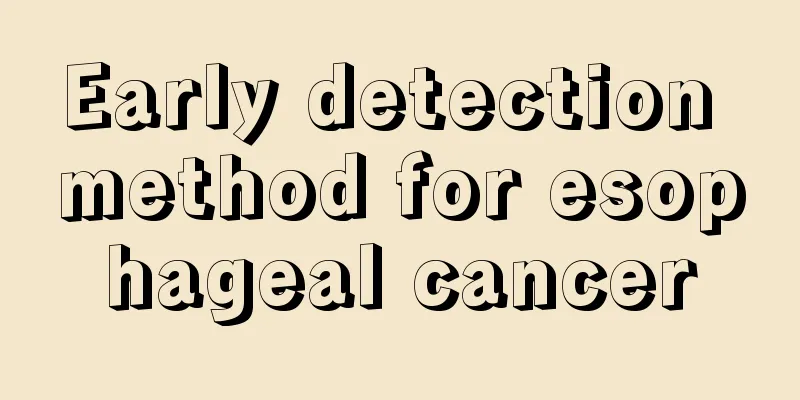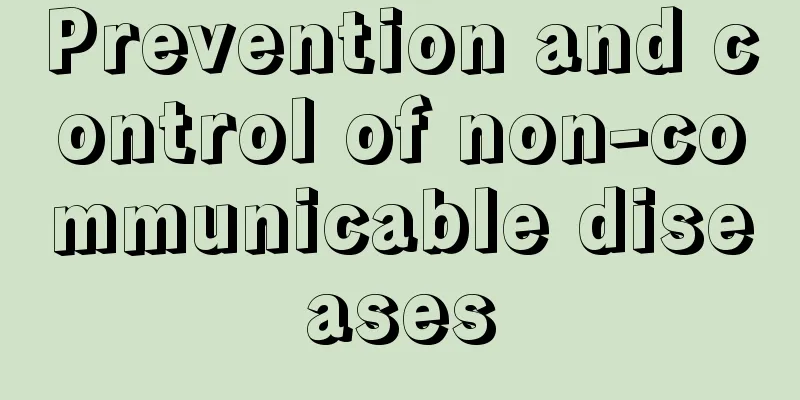Early detection method for esophageal cancer

|
In recent years, the incidence of esophageal cancer has continued to rise, bringing a lot of trouble and harm to people, and increasing people's fear of cancer. However, many people actually don't know much about esophageal cancer. The less they know, the more afraid they are of it. So today, experts will explain to you what are the early detection methods for esophageal cancer? Esophageal exfoliative cytology examination: The biggest feature of this examination method is that it causes less pain to the examinee and has a high accuracy rate. Practice has shown that the total positive rate of esophageal cancer detected by this examination in areas with a high incidence of esophageal cancer is as high as over 90%, making it the preferred method for early diagnosis of esophageal cancer. X-ray barium meal contrast: This examination is not easy to detect early esophageal cancer, so during the test, the doctor will ask the patient to swallow barium in small sips several times, and then through observation and double contrast of air and barium, it can be found whether the esophageal mucosa is thickened, tortuous or interrupted in a dotted line. In addition, it is easy to find whether there is a defect on the edge of the esophagus, localized stiffness of the tube wall, barium retention and other early signs of esophageal cancer. Chest CT scan: This examination is helpful for staging, resection judgment, and prognosis estimation of esophageal cancer. Fiber endoscopy: This examination has become a routine clinical diagnostic method for digestive tract diseases such as esophageal cancer and gastric cancer. This device is bendable, has a wide visual range, and has a high accuracy rate. The detection rate of fiber endoscopy can reach more than 85% for early esophageal cancer. Esophageal endoscopic ultrasound examination: In recent years, esophageal endoscopic ultrasound examination has been gradually applied in clinical practice. Its advantages are that it can accurately measure the depth of lesions infiltrating the esophageal wall; it can measure abnormally enlarged lymph nodes outside the wall; and it is easy to identify the location of lesions in the esophageal wall. The above are the examination methods used in medicine to diagnose esophageal cancer in recent years. With the progress of the times, medical research on cancer has also been progressing, and more and more cancers can be cured. Therefore, esophageal cancer is definitely not an incurable disease. As long as the patient faces it bravely and actively treats it, complete recovery is entirely possible. |
<<: Gastroscopy for esophageal cancer
>>: Nursing diagnosis method for esophageal cancer
Recommend
How to choose the right treatment plan for patients with tongue cancer
Bad or damaged teeth can easily irritate and dama...
Skin cancer can cause systemic allergies
Improper treatment of any disease will cause a se...
How to heal a sore tongue quickly
If the skin on the tongue is broken, it will feel...
Can I drink chrysanthemum and wolfberry tea when I have a cold?
Chrysanthemum and wolfberry tea is drinkable as l...
How to enlarge breasts healthily
Nowadays, many female friends have higher and hig...
The impact of adults' quarrels on children
In a normal marital relationship, not all couples...
How is lymphoma inherited
This is a problem that many women of childbearing...
What are lymph nodes and how to understand them correctly
Speaking of lymph nodes, I believe every adult is...
Exercises suitable for ovarian cancer patients
Daily exercise can also prevent ovarian cancer. M...
What is the reason for the pain on the outside of the knee
People who suffer from pain on the outside of the...
Treatment of osteoarthritis
The term osteoarthritis is still not well underst...
What face shape does a large jawbone have?
Everyone has their own face shape, like some peop...
What are the benefits of drinking pomegranate seeds soaked in water
Pomegranate is a fruit with high nutritional valu...
What to do if sweat odor is very strong in summer
It is common to have a strong sweat odor in the s...
How to detoxify uneven skin tone
Whether it is air or diet, a lot of toxins will a...









